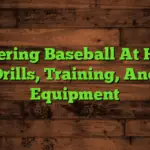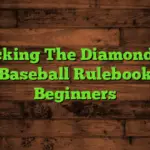The Ultimate Guide to Collecting Baseball Memorabilia
Step 4: SEO-Friendly Introduction
Are you a baseball fan with a passion for collecting? Then you’ve come to the right place! This comprehensive guide explores the exciting world of best baseball souvenirs to collect. Whether you’re a seasoned collector or just starting out, we’ll cover everything you need to know to build a remarkable collection. We’ll delve into different types of memorabilia, discuss their value, offer tips for authentication, and provide advice on storing and displaying your treasures. Get ready to discover the thrill of the hunt and the joy of owning a piece of baseball history!
Baseball memorabilia collecting is a passionate hobby enjoyed by millions worldwide. It’s a journey of discovery, a way to connect with the history and legacy of the sport, and a chance to own a piece of
something truly special. From vintage baseball cards to signed bats, the variety of collectibles is vast, offering something for everyone, regardless of budget or collecting focus.
2. Types of Baseball Memorabilia: A Collector’s Guide
The world of baseball memorabilia is incredibly diverse. Here are some of the most sought-after categories:
- Baseball Cards: From early tobacco cards to modern releases, these are a cornerstone of collecting. Condition is key; grading services like PSA and Beckett help determine value.
- Autographed Items: Signed baseballs, bats, jerseys, and photographs are highly prized. Authenticity is paramount; learn to identify forged signatures.
- Game-Used Equipment: Bats, gloves, and uniforms worn in actual games hold significant historical value. Their scarcity drives up prices.
- Tickets & Programs: Vintage game tickets and programs offer a glimpse into baseball’s past, especially those from significant events.
- Photos & Newspapers: Historical photographs and newspaper clippings documenting iconic moments or players are highly collectible.
3. Understanding the Value of Baseball Memorabilia
The value of baseball memorabilia is influenced by several factors: rarity, condition, player popularity, historical significance, and provenance (chain of ownership). A rare rookie card in pristine condition will command a much higher price than a common card in poor condition. Similarly, items associated with legendary players like Babe Ruth or Jackie Robinson are exceptionally valuable.
4. Authenticating Baseball Memorabilia: Avoiding Forgeries
Authentication is crucial. Counterfeit items are prevalent, so it’s vital to learn how to spot fakes. Look for inconsistencies in signatures, stitching, or materials. Using reputable authentication services like JSA or PSA can provide peace of mind and protect your investment.
5. Building Your Collection: Strategies and Tips
Start with a focus. Choose a specific area to specialize in (e.g., 1950s Topps cards, autographed Yankees memorabilia). This helps you build a cohesive and valuable collection. Attend auctions, browse online marketplaces (eBay, etc.), and visit local card shops. Always research prices before buying.
6. Storing and Preserving Your Collection
Proper storage is key to maintaining the value of your memorabilia. Use acid-free sleeves and holders for cards, display signed items in protective cases, and store valuable items in a climate-controlled environment to prevent damage from humidity or temperature fluctuations.
7. Online Resources and Communities
Numerous online resources and communities can enhance your collecting experience. Websites dedicated to baseball card grading, auction sites, and forums dedicated to specific players or eras offer valuable information and networking opportunities.
8. The Financial Aspect of Collecting
Collecting can be a financial investment. Some items appreciate in value over time, while others may remain stable or even decrease. Careful research and informed purchasing decisions are vital. Remember, collecting should be enjoyable; don’t overspend.
9. The Ethical Considerations of Collecting
Ethical sourcing is crucial. Avoid purchasing stolen or illegally obtained items. Support reputable dealers who prioritize authenticity and fair practices. Respect the history and legacy of the game.
10. Beginner’s Guide to Collecting Baseball Memorabilia
Beginners should focus on building a foundation. Start with affordable items, learn about grading and authentication, and gradually expand your collection as your knowledge grows. Join online communities to connect with other collectors and gain insights.
11. Advanced Collecting Techniques
Advanced collectors often specialize in niche areas, focusing on particular players, teams, or eras. They actively network with other collectors, attend auctions, and leverage their expertise to find rare and valuable items.
12. Grading and Appraising Your Collection
Professional grading services provide an objective assessment of a card’s or item’s condition. This significantly impacts its value. Appraisals are useful for insurance purposes or when considering selling items.
13. Selling Your Collection: Tips and Strategies
When selling, research market values, use high-quality photos, and provide detailed descriptions. Consider using online auction sites or working with reputable dealers. Be patient and negotiate fairly.
14. The Role of Technology in Baseball Memorabilia
Technology plays a significant role, from online marketplaces to authentication databases. Digital platforms facilitate buying, selling, and information sharing among collectors worldwide.
15. The Future of Baseball Memorabilia Collecting
The market is constantly evolving. New technologies and trends may influence the value and desirability of certain items. Staying informed is key to remaining competitive and making smart decisions.
16. Comparing Different Types of Memorabilia
Each type of memorabilia presents unique challenges and rewards. Baseball cards are widely available but require careful handling; autographed items require authentication; game-used equipment is rare and expensive.
17. Case Studies: Famous Collections
Studying notable collections provides insights into successful collecting strategies. Researching the approaches of renowned collectors can offer valuable lessons and inspiration.
18. Resources for Collectors
Explore online databases, auction sites, hobby shops, and collector forums. These resources provide valuable information, facilitate networking, and broaden your knowledge base.
Frequently Asked Questions
What are the most valuable types of baseball memorabilia?
Generally, items associated with legendary players, rare rookie cards in perfect condition, and game-used equipment from significant games command the highest prices. The historical context and provenance also influence value.
How can I tell if a signed item is authentic?
Professional authentication services are crucial. Look for inconsistencies in signatures, examine the materials used, and research the signer’s known signature styles. Compare to verified examples.
Where can I buy baseball memorabilia?
Online marketplaces (eBay), auction houses (Heritage Auctions), local card shops, and online forums are common sources. Always research the seller’s reputation before buying.
How should I store my baseball cards?
Use acid-free card holders and sleeves to protect cards from damage and deterioration. Store them in a cool, dry place away from direct sunlight and moisture.
What is the best way to protect my signed baseballs?
Display signed baseballs in protective cases that shield them from dust, scratches, and moisture. Consider using UV-protective cases to prevent fading.
How can I learn more about baseball memorabilia collecting?
Join online forums, read books and magazines dedicated to collecting, and attend card shows or auctions. Networking with experienced collectors is invaluable.
Final Thoughts
Collecting baseball memorabilia is a rewarding and engaging hobby that combines history, passion, and investment. By understanding the different types of collectibles, appreciating their value, and implementing sound collecting strategies, you can build a remarkable and potentially valuable collection. Remember to prioritize authentication, proper storage, and ethical sourcing. The journey of collecting is as much about the pursuit as it is about the acquisition. Enjoy the process of discovering treasures from baseball’s rich history and building a legacy that you can pass on to future generations. Start building your collection today!





